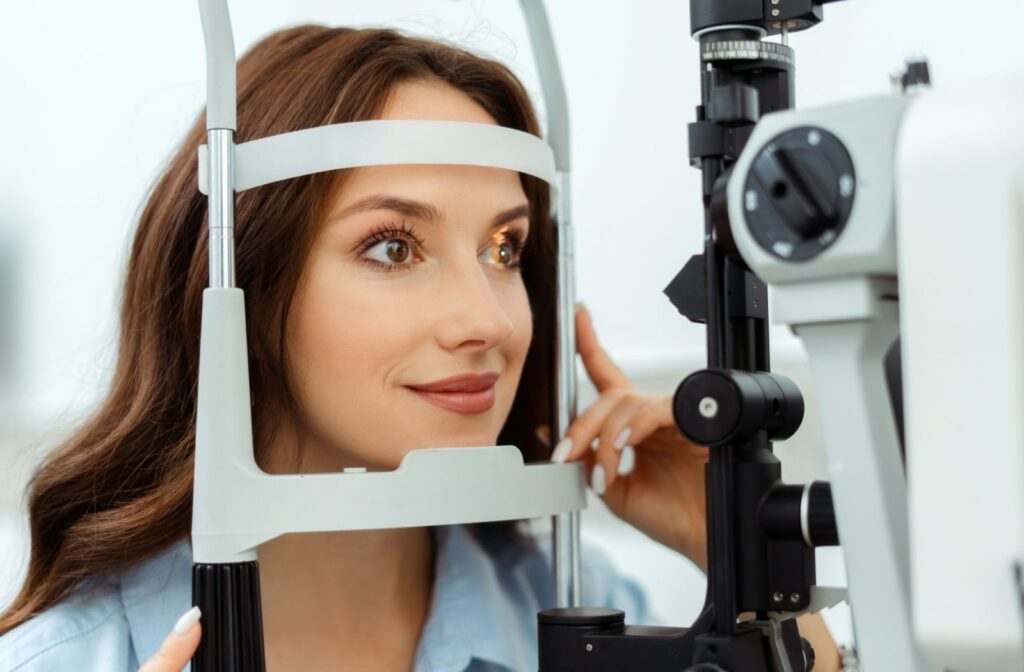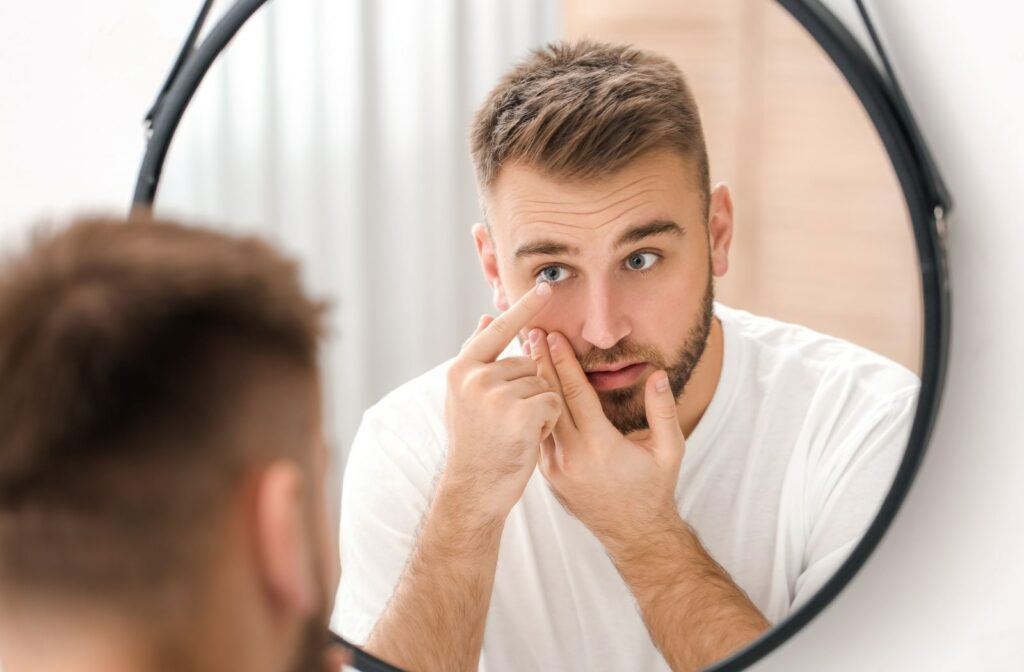For many people, correcting vision and juggling a lifestyle can be complex with contact lenses. Even though contact lenses are widely used, many users frequently overlook a crucial component: the expiration date. Contact lenses can expire, and using expired contacts can lead to a number of health and safety risks, not to mention discomfort.
Before your next contact lens appointment, It’s important to understand that contact lenses have an expiration date, very similar to medications. Understanding the significance of an expiry date is essential to protecting the health of your eyes, ensuring that your contact lenses function as intended, and avoiding any potential issues involving your eyes.
The Importance of Expiration Dates on Contact Lenses
Sterile conditions are used in the production of contact lenses, and they are packaged to maintain both sterility and moisture. The manufacturer assures the sterility and safety of the lenses for usage up until the expiration date as listed on their box. After this time, there may be an increased risk of developing eye infections and other major health issues.
Users can prevent the risks connected with using compromised lenses by understanding why expiration dates exist in the first place. Expiration dates make it possible to make sure that people are wearing safe and effective corrective lenses. It is imperative to take this precaution in order to preserve the health of your eyes and avoid any difficulties that can result from using lenses that are damaged beyond repair.
Why Do Contacts Expire?
The components that makeup contact lenses and the fluid they’re stored in may degrade with time. This degradation may cause discomfort, reduced efficacy, and damage to the eyes by changing the shape, structure, and oxygen permeability of the lenses. To make sure the lenses are used as long as possible in optimal condition, use the expiration date as a guide.
Certain contact lens types may come in enclosed packaging that deteriorates with time, allowing bacteria to get inside and accumulate on your contacts before you wear them. An elevated risk of illnesses and irritation can result in bacterial accumulation.
Health & Safety Concerns with Using Expired Contacts
It is important to be aware of the potential health and safety risks associated with using contact lenses over their expiration date. Throwing away expired contacts is preferable to taking a chance on wearing them.
Eye Infections
The manufacturer’s warranty regarding the sterility of the lenses expires after that date. Contact lenses past their warranty can provide an environment conducive to the growth of microorganisms, which can result in a variety of eye infections ranging from minor irritation and pain to more serious infections that may cause blindness if left untreated.
Discomfort & Eye Damage
Your comfort and eye health may be directly impacted by used contact lenses. The lenses may become less smooth or even slightly distorted as they deteriorate, which could physically irritate your eye’s delicate tissues.
General pain, a feeling that something is in the eye, or, in more serious situations, corneal abrasions are some of the ways that irritation can appear. These superficial scratches on the cornea can hurt and increase the risk of infection in the eye.
Variations in the permeability of the material may also hinder oxygen delivery to the cornea, raising the risk of dry eye disease and other disorders.

Tips for Contact Lens Use
It’s imperative to take the following actions to avoid the risks associated with contact lenses:
- Check the expiration date at all times: Before purchasing or utilizing contact lenses, always make sure the expiration date is accurate. To make sure contacts are used within a safe time limit, avoid using them too soon after they expire.
- Follow the storage guidelines: As directed by the manufacturer, store your lenses. The lenses may become contaminated or undergo premature deterioration due to improper storage.
- Observe the suggested replacement schedule: Follow your eye doctor’s recommended lens replacement plan for daily, weekly, or monthly lenses. Frequent lens replacement reduces the hazards brought on by extended lens wear.
- Practice good hygiene: Make sure your hands are completely clean before handling contact lenses to reduce the possibility of contaminating your eyes with bacteria.
- Maintain your contact lens hygiene: Every time you take out your lenses, use the suggested solution from your eye care professional to clean, rinse, and disinfect them. Saliva and tap water are not suitable for cleaning lenses due to the presence of bacteria and other microorganisms.
- Never lend out contact lenses: Bacteria can travel through shared lenses and cause infection.
- Reduce your time in the water: by not wearing contact lenses in the hot tub, pool, or shower. Water can contaminate the lenses with microorganisms, raising your chance of getting an eye infection.
- Keep an eye out for any discomfort or changes in your vision: If you notice any redness, discomfort, haziness, or light sensitivity, take out your lenses right once. Please get in touch with your eye care specialist if these symptoms continue, as they can point to an infection or another issue that we can assist with.
Going Forward With Eye Safety
If your contact lenses seem fine, there’s no danger in using them over their expiration date, but there are serious concerns involved.
To ensure the safety and effectiveness of the lenses, the expiration date is set. You may maintain the health of your eyes and continue to get the benefits of using contact lenses without taking needless risks if you observe this date and take good care of your lenses.
You have access to a large selection of contact lenses at White Oaks Optometry. To order a brand-new set of contacts, stop by our London location or book an appointment online!



